Drinking water is essential to staying hydrated and maintaining good health. While the amount of water needed varies depending on various factors, such as age, gender, and activity level, there is a popular notion that drinking a gallon of water a day can have significant health benefits. But what happens to your body if you drink a gallon of water every day?
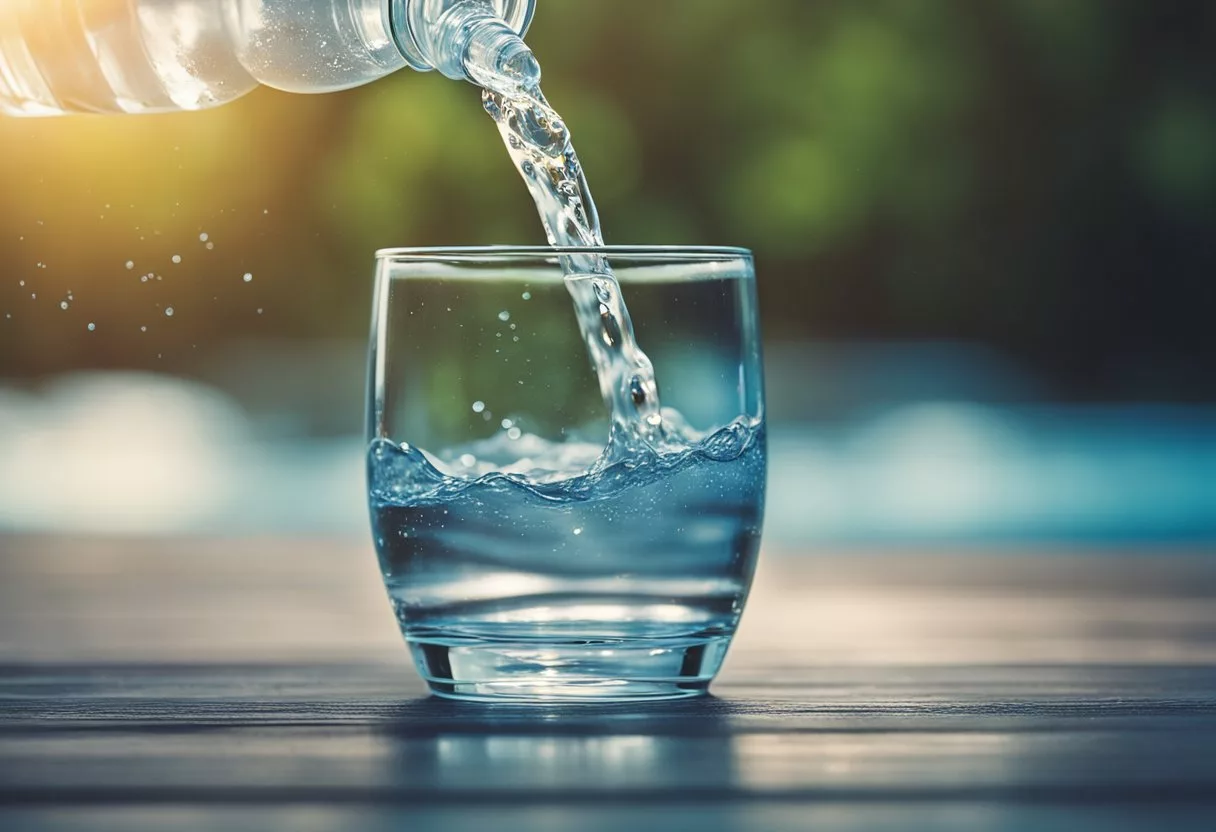
Research suggests that drinking a gallon of water a day can help with weight loss, improve skin health, and boost energy levels. However, it is essential to understand that everyone’s body is different, and what works for one person may not work for another. Therefore, it is crucial to consult a healthcare professional before making any significant changes to your water intake.
In this article, we will explore the effects of drinking a gallon of water a day on the body. We will examine the science behind it and look at the benefits and risks associated with this practice. So, whether you are considering drinking a gallon of water a day or just curious about its effects, keep reading to find out more.
Understanding Hydration and Health
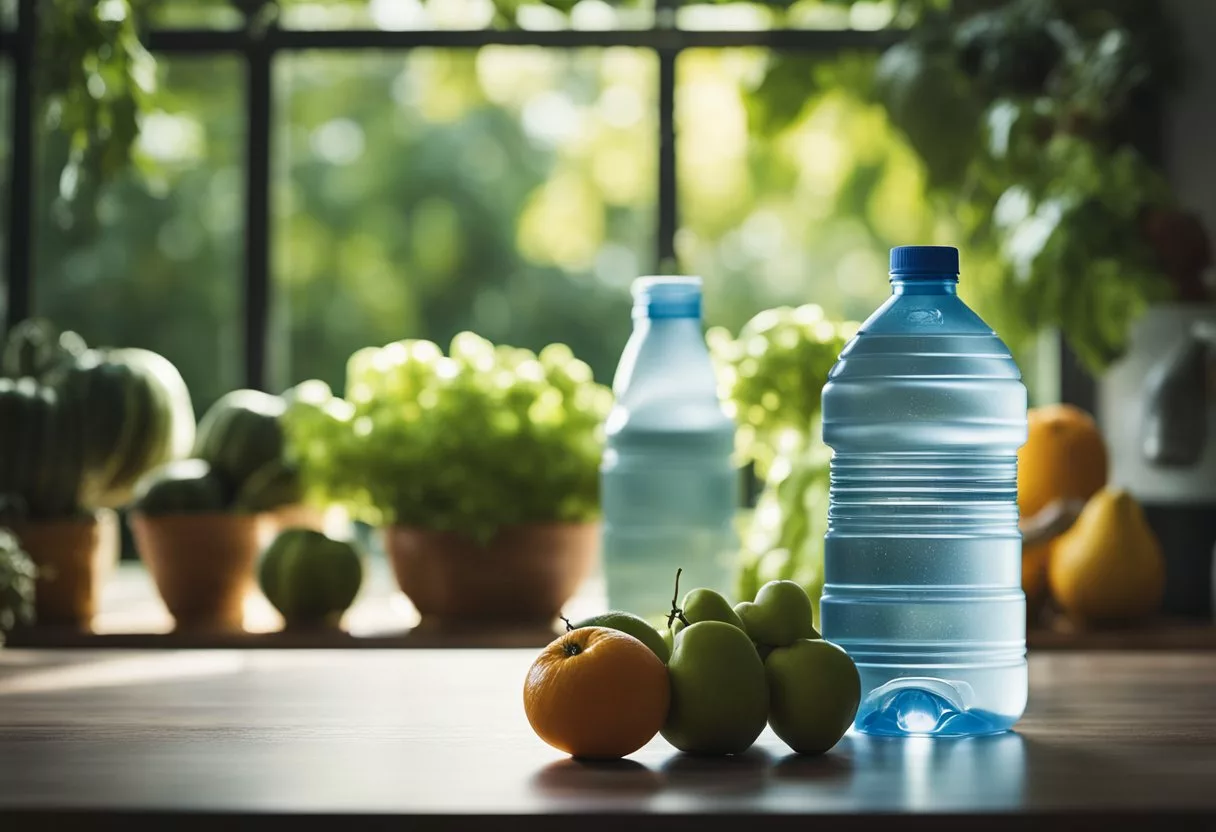
The Role of Water in the Body
Water is essential for life, and the human body is made up of about 60% water. It plays a crucial role in many bodily functions, including:
- Regulating body temperature
- Transporting nutrients and oxygen to cells
- Removing waste products from the body
- Lubricating joints
- Protecting organs and tissues
- Maintaining healthy skin
Water is also important for maintaining the balance of electrolytes in the body, which are essential for proper muscle and nerve function.
Recommended Daily Water Intake
The amount of water a person needs to drink each day can vary depending on a number of factors, including age, gender, weight, and activity level. As a general rule, men should aim to drink about 15.5 cups (3.7 liters) of fluids per day, while women should aim for about 11.5 cups (2.7 liters) per day. These recommendations cover fluids from water, other beverages, and food, with about 20% of daily fluid intake usually coming from food and the rest from drinks.
It’s important to note that these are just general guidelines, and individual needs may vary. For example, people who are more physically active or live in hot climates may need to drink more water to stay properly hydrated.
Dehydration can have serious health consequences, including fatigue, headaches, dizziness, and even fainting. It’s important to stay properly hydrated by drinking enough fluids throughout the day, and not just when you feel thirsty.
In conclusion, understanding the role of water in the body and the recommended daily water intake can help ensure that you stay properly hydrated and maintain good health.
Physical Health Benefits
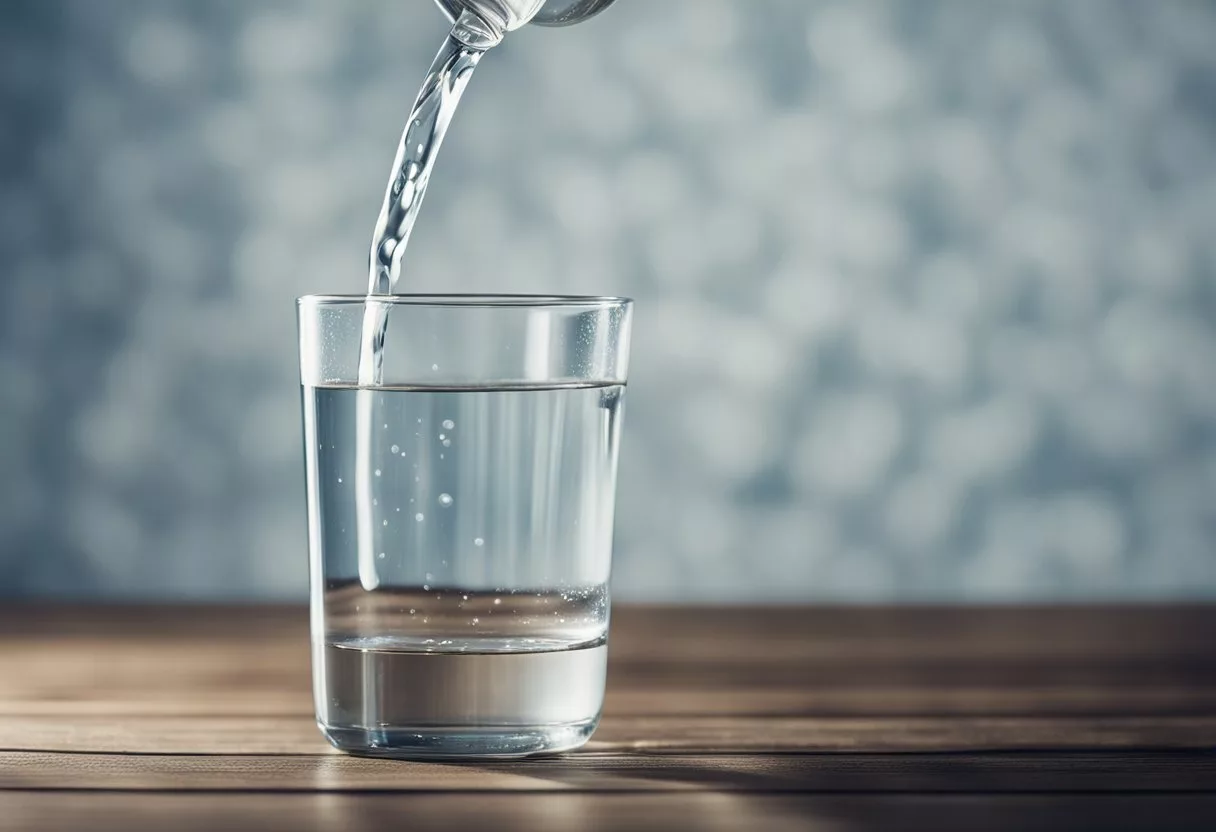
Drinking a gallon of water every day can have numerous physical health benefits. In this section, we will explore some of the most notable ones.
Enhanced Kidney Function
The kidneys are responsible for filtering waste and toxins from the blood. Drinking plenty of water can help the kidneys do their job more efficiently. When the body is properly hydrated, the kidneys can flush out waste and toxins more easily, which can reduce the risk of kidney stones and other kidney-related problems.
Improved Digestive System
Water is essential for proper digestion. When the body is dehydrated, it can lead to constipation and other digestive issues. Drinking a gallon of water every day can help keep the digestive system functioning properly, ensuring that nutrients are properly absorbed and waste is eliminated efficiently.
Support for Joints and Tissues
Staying hydrated is important for maintaining healthy joints and tissues. Water helps lubricate the joints, which can reduce the risk of joint pain and stiffness. It also helps keep the tissues in the body hydrated, which can improve overall flexibility and mobility.
In addition to these benefits, drinking a gallon of water every day can also help regulate sodium levels in the body, improve overall hydration, and support the body’s ability to absorb essential nutrients. By making sure to stay properly hydrated, individuals can help support their physical health and well-being.
Metabolic and Weight Management
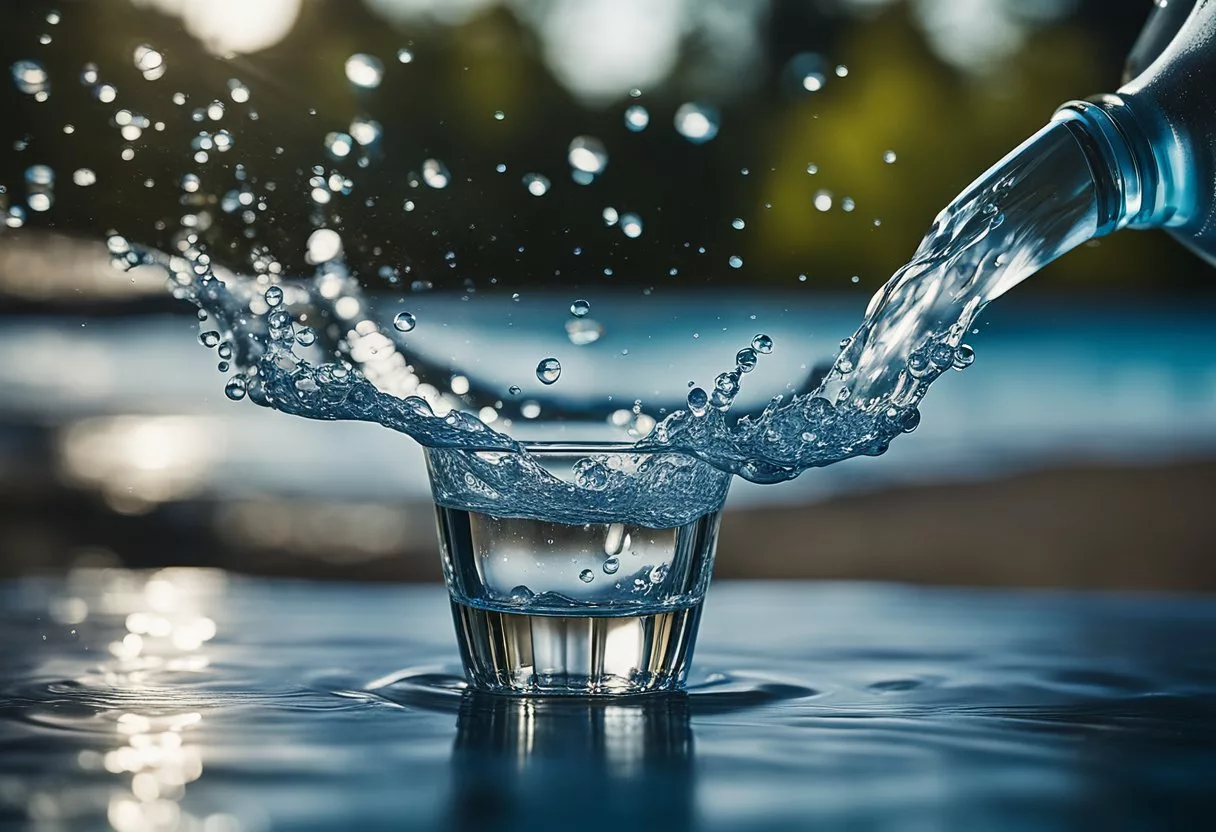
Boosting Metabolism
Drinking a gallon of water per day can boost a person’s metabolic rate. Research suggests that the metabolic rate can increase by as much as 30% for the next 30 to 40 minutes after consuming 16 ounces of water. This means that drinking water can help burn more calories and aid in weight loss. A study found that committing to drinking half of one’s body weight in ounces of water each day can lead to weight loss [1].
Controlling Appetite and Cravings
Drinking water can help control appetite and cravings. Often, people mistake thirst for hunger, leading them to eat when they are not actually hungry. By drinking water, a person can assess whether they are actually hungry or just thirsty. Additionally, drinking water before meals can lead to a feeling of fullness, resulting in eating less and weight loss [2].
Overall, drinking water can have a positive impact on a person’s metabolic rate and weight management. It can help burn more calories, control appetite, and aid in weight loss.
[1] Source: https://www.byrdie.com/what-happens-when-you-drink-a-gallon-of-water-a-day-5113158 [2] Source: https://www.verywellhealth.com/does-drinking-water-help-you-lose-weight-8426928
Cognitive and Emotional Health
Improvement in Brain Function
Drinking a gallon of water a day can have a positive effect on brain function. The brain is made up of 73% water, and dehydration can lead to impaired cognitive and emotional function. When the body is dehydrated, the brain has to work harder to perform simple tasks, which can lead to fatigue and difficulty concentrating. Adequate hydration can help improve short-term memory and concentration, making it easier to stay focused and productive throughout the day.
Mood and Concentration
Studies have shown that even mild dehydration can cause issues such as headaches, irritability, and reduced cognitive functioning. Drinking a gallon of water a day can help prevent these symptoms and improve overall mood and concentration. When the body is properly hydrated, it can help reduce stress and anxiety, which can lead to improved emotional health. Additionally, staying hydrated can help prevent migraines, which can be triggered by dehydration.
In summary, staying hydrated by drinking a gallon of water a day can have a positive impact on cognitive and emotional health. It can help improve brain function, short-term memory, concentration, and mood, while also reducing the risk of headaches and migraines.
Hydration for Active Lifestyles

Staying hydrated is essential for maintaining optimal physical and mental health, especially for people with active lifestyles. In this section, we will explore the importance of hydration for active individuals and how it can affect exercise performance and energy levels.
Exercise and Fluid Replacement
When engaging in physical activity, the body loses water through sweat, and it is essential to replace the lost fluids to avoid dehydration. According to the American Council on Exercise, “a loss of as little as 2% of body weight due to dehydration can lead to a decrease in exercise performance.” Therefore, it is crucial to consume enough fluids before, during, and after exercise to maintain proper hydration levels.
To determine how much water is needed during exercise, it is recommended to weigh yourself before and after exercise to estimate fluid loss. For every pound lost, consume 16-20 ounces of water to rehydrate adequately. It is also essential to consume fluids that contain electrolytes, such as sodium and potassium, to replace the minerals lost through sweat.
Maintaining Energy Levels
Dehydration can also lead to a decrease in energy levels, making it challenging to maintain an active lifestyle. Drinking enough water can help maintain energy levels by keeping the body hydrated and reducing fatigue.
In addition to drinking water, consuming foods with high water content, such as fruits and vegetables, can also help maintain hydration levels. Foods such as watermelon, cucumbers, and oranges are excellent sources of water and can help keep the body hydrated throughout the day.
In conclusion, staying hydrated is crucial for people with active lifestyles. Drinking enough water and consuming foods with high water content can help maintain optimal hydration levels, improve exercise performance, and reduce fatigue. It is essential to consume enough fluids before, during, and after exercise and to replace lost electrolytes to maintain proper hydration levels.
Potential Risks and Considerations
Hyponatremia and Overhydration
While drinking a gallon of water a day can have health benefits, it can also lead to hyponatremia and overhydration in some individuals. Hyponatremia is a condition where the concentration of sodium in the blood is lower than normal, which can cause symptoms such as headache, nausea, confusion, seizures, and in severe cases, coma and death. Overhydration, on the other hand, occurs when the body takes in more water than it can excrete, leading to swelling of the brain, seizures, and even death.
Individuals with certain health conditions, such as congestive heart failure and end-stage kidney disease, may be at a higher risk of developing hyponatremia and overhydration. It is important to consult a doctor before starting a gallon-a-day water regimen if you have any underlying health conditions or are taking medications that affect fluid balance.
Understanding Your Individual Needs
It is important to note that the amount of water an individual needs can vary depending on factors such as age, sex, weight, activity level, and climate. While the general recommendation is to drink at least 8 cups of water a day, some individuals may require more or less water to maintain proper hydration.
Drinking a gallon of water a day may not be necessary or appropriate for everyone. It is important to listen to your body and adjust your water intake accordingly. Signs of dehydration include thirst, dry mouth, fatigue, and dark-colored urine. If you experience any of these symptoms, it may be a sign that you need to increase your water intake.
In summary, while drinking a gallon of water a day can have health benefits, it is important to be aware of the potential risks and considerations. Individuals with certain health conditions or taking medications should consult a doctor before starting a gallon-a-day water regimen. It is also important to listen to your body and adjust your water intake accordingly to meet your individual needs.
Dietary Sources of Water
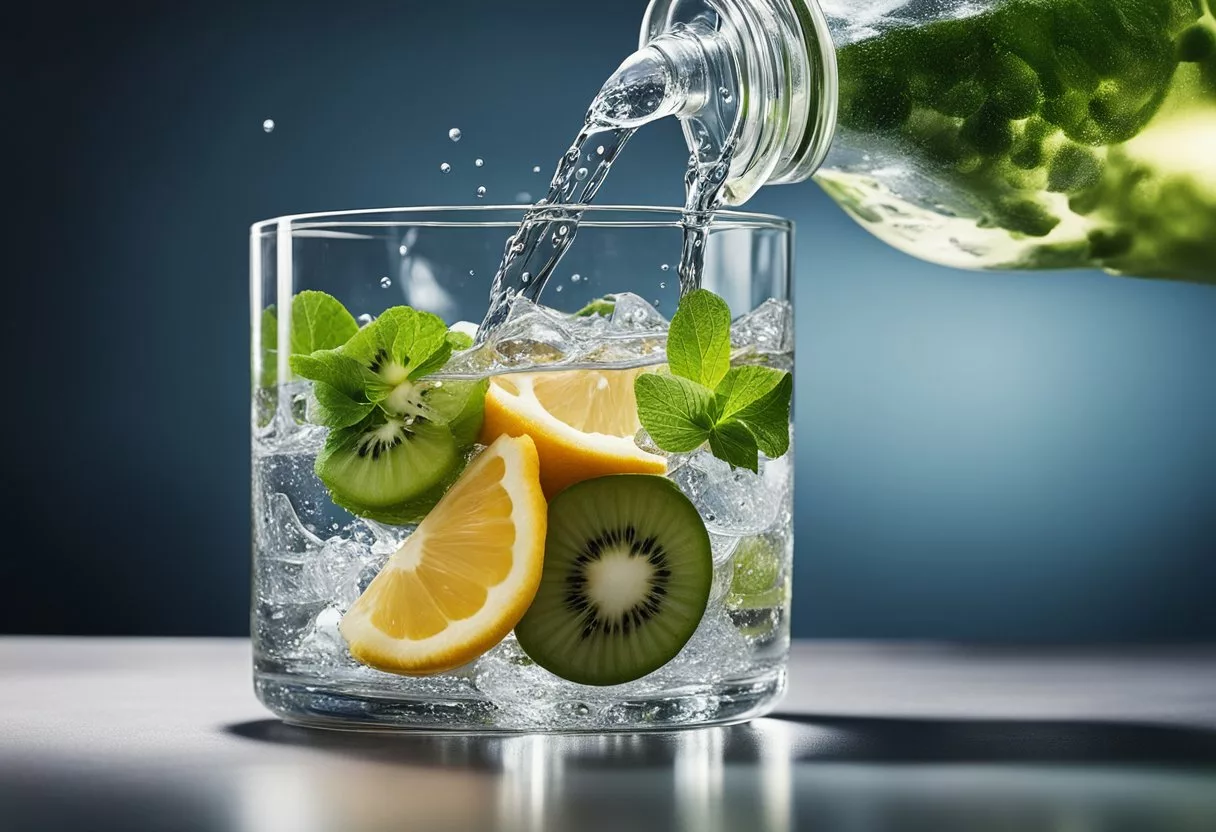
Staying hydrated is essential for maintaining good health. While drinking water is the most obvious way to stay hydrated, it is not the only way. Many foods and beverages also contain water and can contribute to your daily water intake.
Fruits, Vegetables, and Other Beverages
Fruits and vegetables are excellent sources of water. Some of the best choices include watermelon, strawberries, grapefruit, cucumber, lettuce, celery, and spinach. These foods are not only high in water, but also contain important vitamins and minerals that are essential for good health.
In addition to fruits and vegetables, there are many other beverages that can help you stay hydrated. Milk, juice, tea, and coffee all contain water, and can contribute to your daily water intake. However, it is important to note that some beverages, such as soda and energy drinks, can actually dehydrate you due to their high sugar and caffeine content.
Overall, it is recommended that adults drink at least 8 cups (64 ounces) of water per day. However, this amount can vary depending on factors such as age, gender, weight, and activity level. By incorporating foods and beverages that are high in water into your diet, you can help ensure that you are getting enough water to stay hydrated and maintain good health.
Monitoring and Adjusting Your Intake
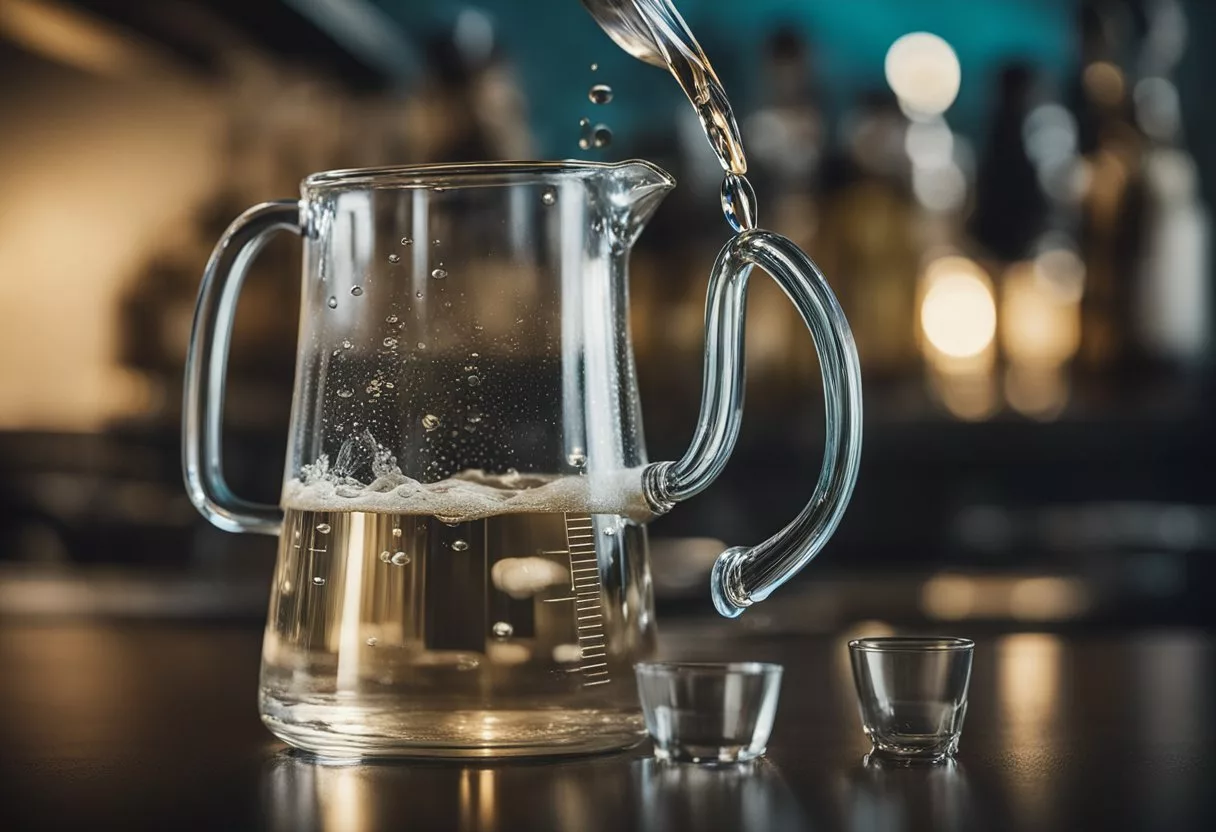
Signs of Adequate Hydration
Drinking a gallon of water per day is a good way to ensure that you are staying hydrated. However, it is important to monitor your fluid intake to ensure that you are not overhydrating or underhydrating. One of the best ways to determine if you are drinking enough water is to pay attention to your thirst. If you are thirsty, it is a good indication that your body needs more fluids. If you are not thirsty, it is a sign that you are likely well-hydrated.
Another way to monitor your hydration levels is to pay attention to your urine color and frequency. If you are well-hydrated, your urine should be a light yellow color and you should be urinating every few hours. If your urine is dark yellow or amber in color, it is a sign that you need to drink more water. If you are urinating less frequently than usual, it is also a sign that you may be dehydrated.
When to Increase Water Consumption
There are several factors that can affect your daily fluid intake needs. These include environmental factors such as temperature and humidity, as well as physical factors such as fever, diarrhea, and vomiting. In general, if you are in a hot or humid environment, you will need to drink more water to stay hydrated. If you are experiencing a fever, diarrhea, or vomiting, you will also need to drink more water to replace the fluids that you are losing.
It is also important to adjust your fluid intake based on your physical activity levels. If you are exercising or engaging in other physical activities, you will need to drink more water to replace the fluids that you are losing through sweat.
In summary, monitoring your fluid intake and adjusting it as needed is an important part of staying hydrated and healthy. Paying attention to your thirst, urine color, and frequency can help you determine if you are drinking enough water, and adjusting your fluid intake based on environmental and physical factors can help ensure that you are meeting your daily fluid intake needs.
Lifestyle Considerations and Practical Tips
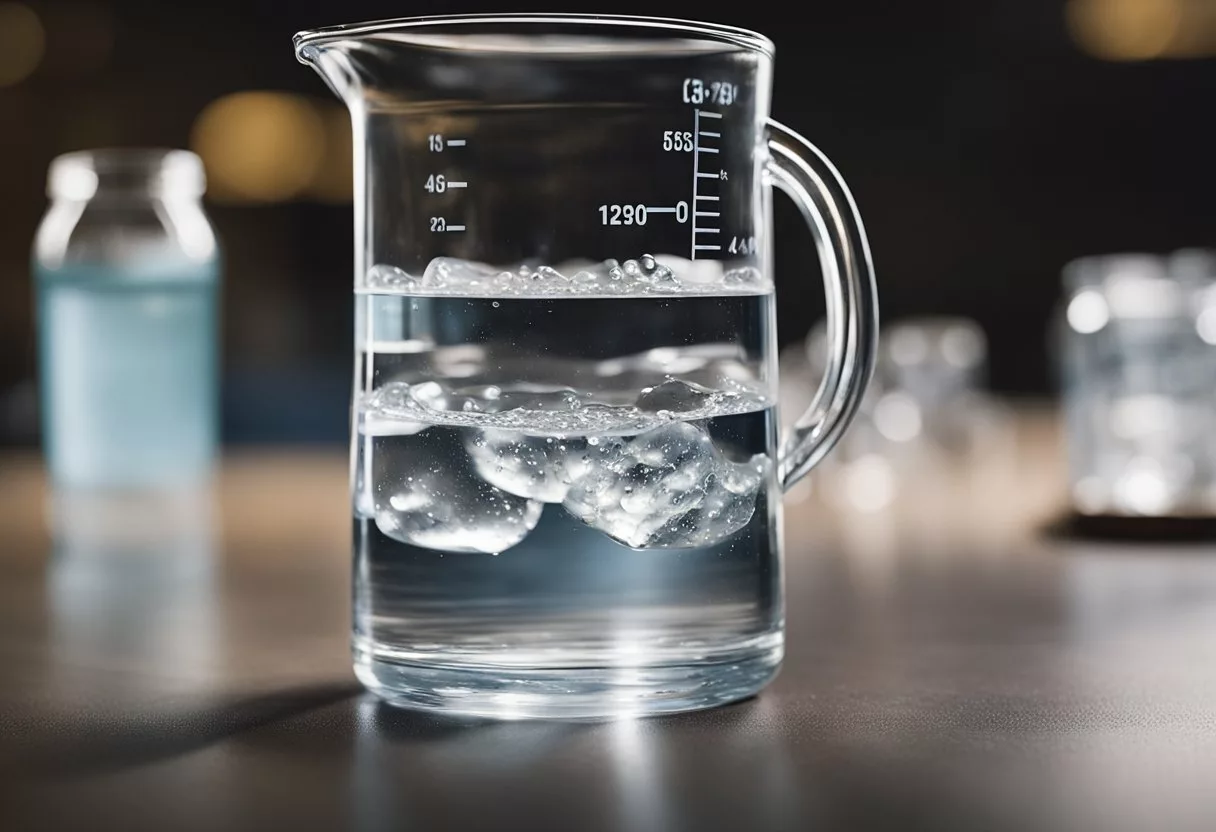
Incorporating Water into Your Routine
Drinking a gallon of water every day can be daunting, but incorporating it into your daily routine can make it easier. Start by carrying a water bottle with you throughout the day, and aim to drink a certain amount by specific times. For example, try to drink a glass of water first thing in the morning, before each meal, and before bedtime. This can help you stay on track and make sure you’re getting enough water.
Another way to incorporate water into your routine is by using it as a lubricant for your daily activities. For example, drinking water before and during exercise can help keep you hydrated and improve your performance. Drinking water can also help keep your skin hydrated, which can improve its overall health and wellness.
Choosing the Right Water Sources
When drinking a gallon of water every day, it’s important to choose the right sources of water. Tap water is a convenient and cost-effective option, but it may contain contaminants such as lead or bacteria. Consider investing in a water filter to remove these contaminants and improve the taste of your water.
Bottled water is another option, but it can be expensive and may not be as environmentally friendly as other options. Look for bottled water that is labeled as “purified” or “spring” water, as these are typically the safest options.
Finally, consider adding electrolytes to your water to help replace those lost through sweating. This can be especially important if you’re exercising regularly or live in a hot climate. There are many electrolyte supplements available, or you can make your own by adding a pinch of salt and a squeeze of lemon juice to your water.
By incorporating water into your routine and choosing the right sources, you can reap the many benefits of drinking a gallon of water every day.